Syd Malaxos is joining the Westford Academy staff as a sophomore chemistry teacher and substitute physics teacher. Having been to many schools in both his educational and professional life, previously working at Maynard High School, he’s no stranger to adapting to new environments. He is driven by his compassionate philosophy of helping students meet their goals, ready to use his kind and thoughtful character to make the most of the year with his students.
Q: Where were you before you came to WA?
A: I was at Maynard High School.
Q: Are there any differences in settling in between WA and previous schools you have worked at?
A: I think the hardest part of being new to a school is trying to find out what the culture’s really like. So for me, I don’t know what honors really means here. I don’t know what AP really means here as a person who taught many different subjects from level two all the way up to AP in chemistry and physics. I just have to know what the real difficulty level is here. That’s my hardest part, bonding with the kids trying to figure out what’s going on. But if you’ve been teaching, the material itself is not the difficulty.
Q: What was your education like? Did you go to a standard public high school?
A: I went to public schools and my father moved a lot, so I went to many public schools. I had a lot of holes in my education growing up. But yeah, it was public school all the way.
Q: Were there any obstacles that you can remember in your education or even in your life in general that you think adjusted your character?
A: I moved a lot when I was younger, and moving a lot [means] you have to be able to adapt pretty quickly to make friends pretty fast. But they are superficial friendships more than bonds. So as a teacher, that’s actually really good because you get to know the kids and you like the kids. I’ll see them in the hallway and maybe in a couple years I’ll see them again, [which] is kind of nice. The biggest thing for me is that I’m dyslexic, and that [wasn’t recognized] until ninth grade, so I know what it’s like to be a bad student.
Q: Is there any teacher that you can remember from your childhood that really inspired you?
A: I think at an early age, most teachers were sort of blended in. I think it was my seventh grade English teacher who was probably the first person who said, “what are you doing, where are you going? Do you know what we’re doing in English class?”. They’re the first person that actually showed that they cared. Then in ninth grade, I had Mr. Funk, who was my math teacher, and I said, “look, this is why I’m having trouble in math”, and he says, “it’s not a problem, here’s a book. Look at this book over the summer, [and] if you do this, you’ll be fine at math”. I went from being not so good at math to being a straight A student at math just from one little interaction. I played chess with him and the chess club, and then got some math ideas off him, but he [was] pretty good.
Q: Is there anybody in your family that was a teacher?
A: My aunt was a professor at NYU. She taught English there. My cousin teaches at a college as well. She teaches business and finance. So there are people in my family [who are in the field of education], but they’re not my direct family, it’s just my cousins or aunts.
Q: What’s your relationship with caffeine?
A: I get up every morning at around 4:45, 4:30. By 5:15 I have one cup of coffee, and that lasts me for the whole entire day. So my relationship with caffeine is one that’s a day at most and so that’s it. But [other than] my regular iced coffee, I don’t have any other caffeine.
Q: Do you have any advice for people seeking to go into a career as an educator?
A: The most important thing is to realize it’s not about the subject. It’s about the individual kids and meeting them where they’re at and growing with them along their journey. It’s not about you telling them what to do. It’s more about saying, “this is what we want you to do” and “where are you at, and [how] can you attain that?”. [From there it’s just] building up through scaffolding [and] helping them adjust along the way. So for me, in education, it doesn’t matter what subject I teach, it’s about bonding with the kids and making sure I know where they’re at with their education. That’s where I’m an expert. I’m an expert at filling in the gaps in their education.
Q: If you didn’t have to be at work right now, where would you be?
A:With my family and my dog. My dog is a 217 pound English Mastiff, and in about an hour 15 minutes I’ll be walking him. So that’s where I’d be. There’s nothing better than cuddling up with the dog and reading a book.

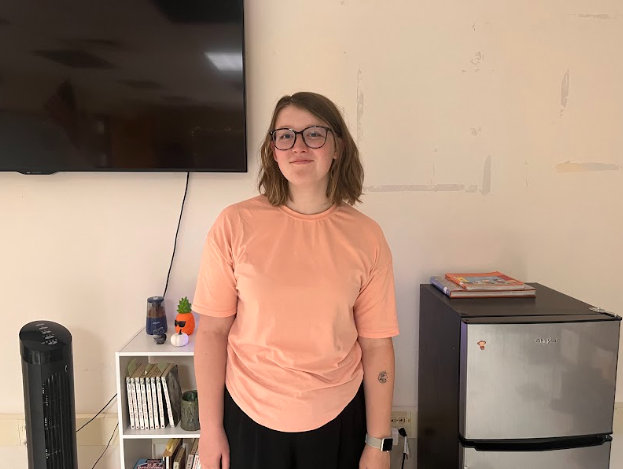
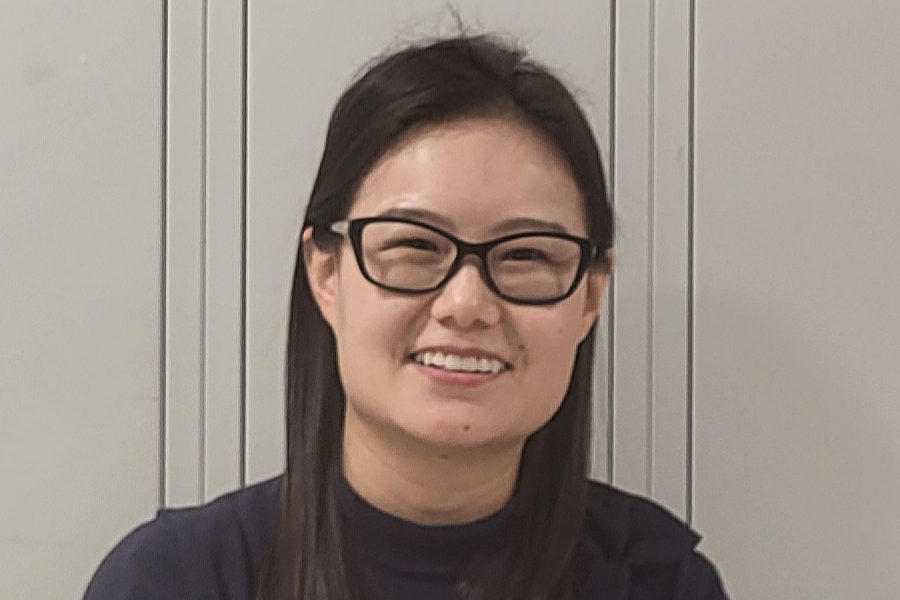
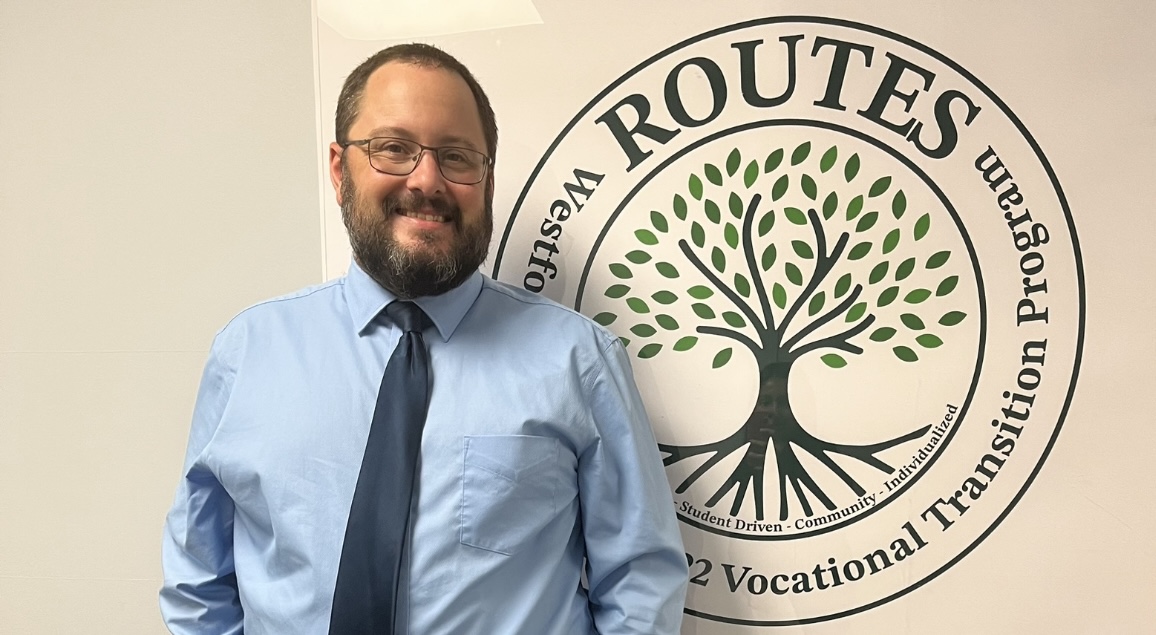
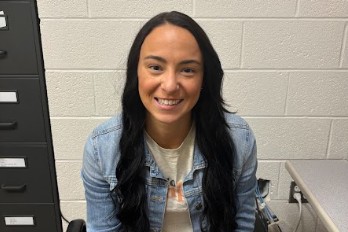
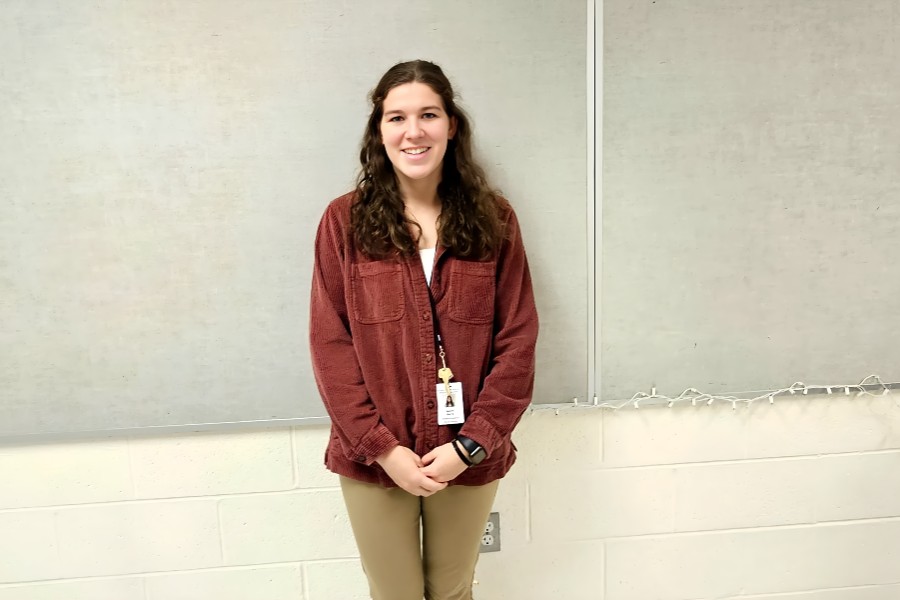
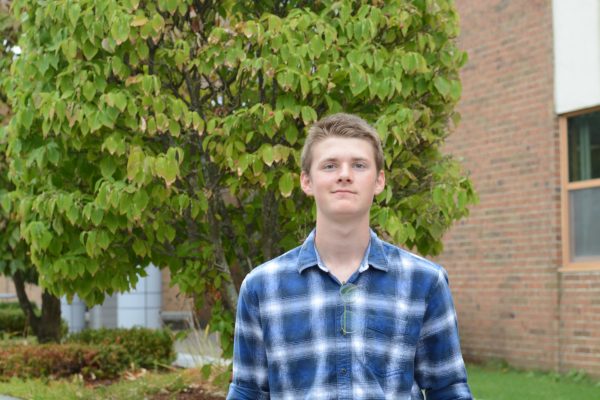
Jaden Ruiz • Nov 22, 2024 at 5:05 pm
This man is one of the best teachers i’ve had. Down to earth, and fun to be around.
Please do tell him that I commented on this.
Love you Syd !!